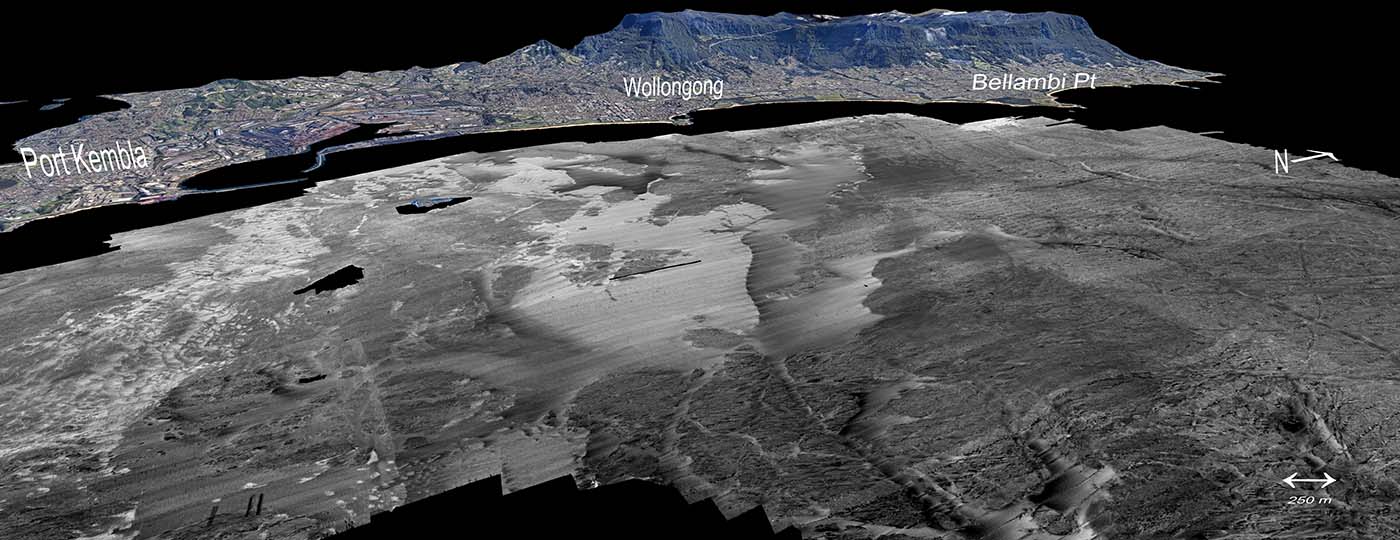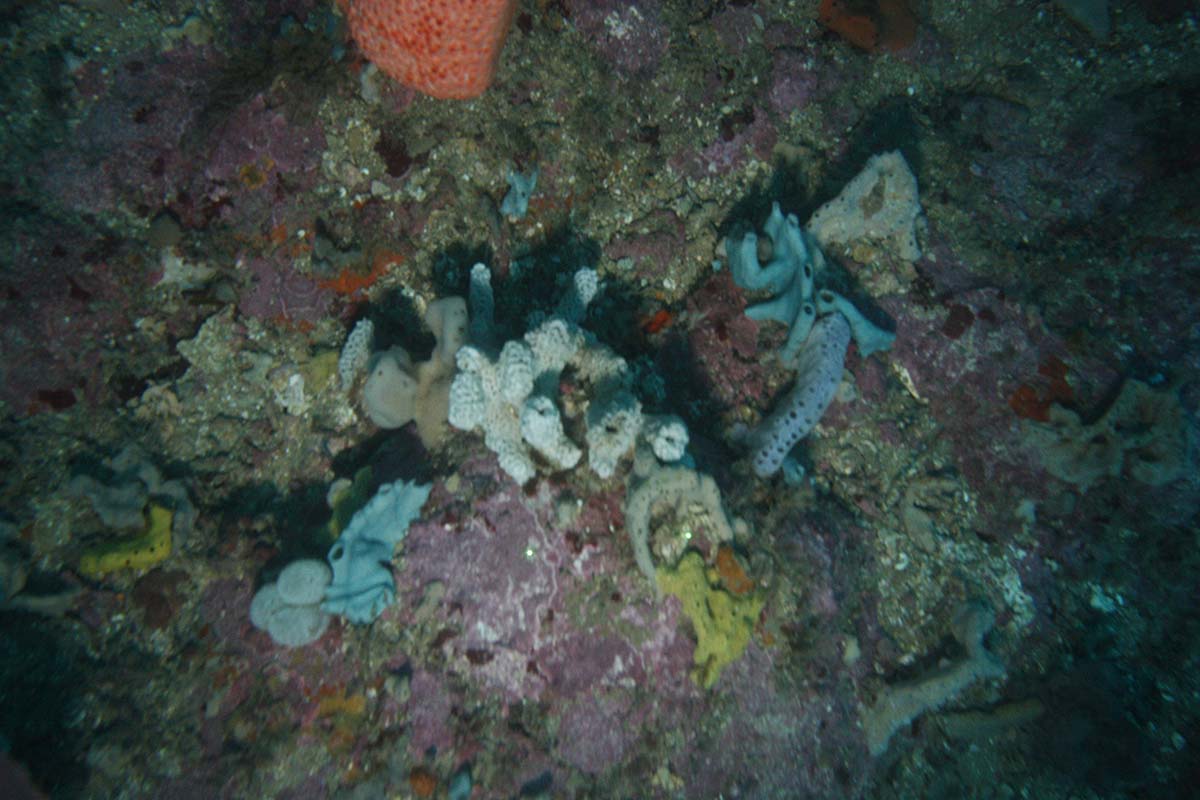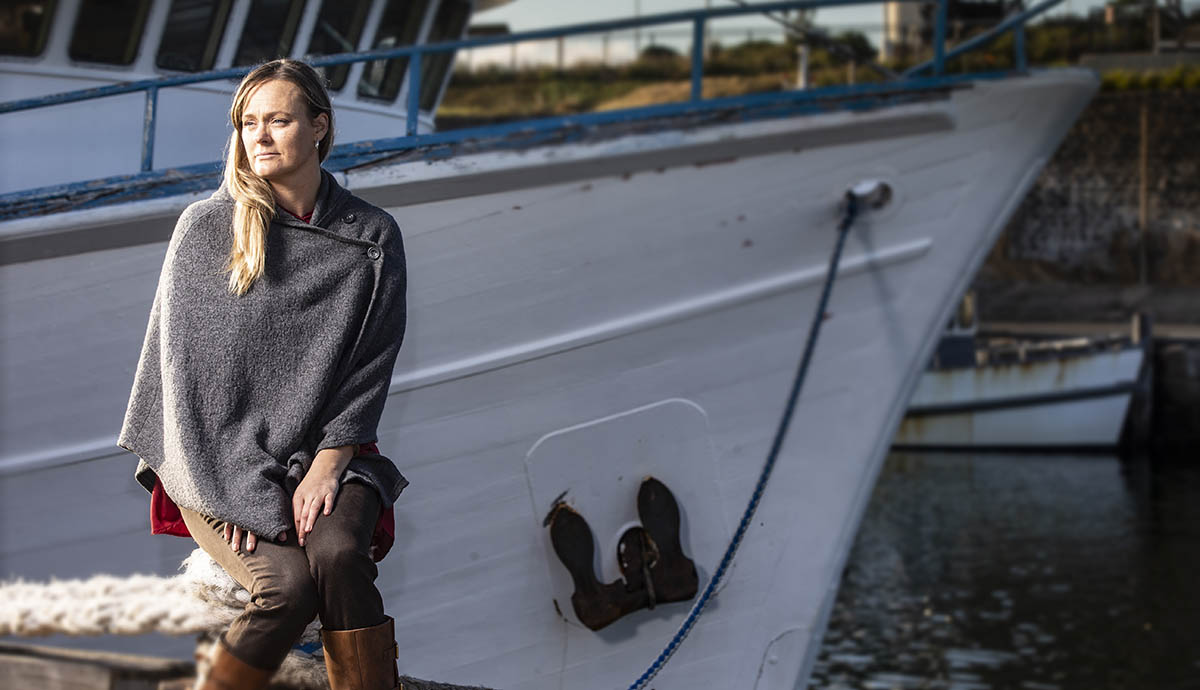June 6, 2018
Partnership to protect marine life near ports
Researchers work with industry to develop sustainable anchoring practices
A partnership between the University of Wollongong (UOW) and NSW Ports, initiated to explore options for ecosystem-based management of seafloor environments, has the potential to benefit marine life not only in the waters off Port Kembla but at ports around Australia and around the globe.
The partnership builds on an existing collaboration between UOW and the NSW Office of Environment and Heritage (OEH) to map sections of seafloor near ocean-going vessel anchorages, while gathering data as part of OEH’s Seabed NSW project, announced earlier this year.
Seeded by UOW’s Global Challenges Program, an interdisciplinary research team is examining how deep-water anchors affect seabed ecosystems. The aim is to identify areas of high conservation value while working with the shipping industry to create sustainable anchoring practices.
Marine scientist Allison Broad (pictured above), from UOW’s School of Biological Sciences, said the research was important as large vessels’ anchors and anchor chains can disrupt marine life when they drag across the seabed.
“This is an exciting opportunity which sees university researchers tackling real-world issues locally with the support of industry,” Ms Broad said.
“We are pleased that a private organisation such as NSW Ports is taking a pro-active approach to support research that investigates environments where ships anchor.
“This information will be useful to provide scientific, business and legal recommendations to government, the shipping industry and decision-makers for better management options for the anchoring of commercial ships.”
NSW Ports CEO Marika Calfas said NSW Ports was committed to supporting sustainable supply chains to transport the goods we all consume and those we export overseas.
“We are pleased to partner with UOW to identify valuable offshore habitats and promote anchoring practices which contribute to the conservation of marine ecosystems,” she said.
The anchoring project, using sonar and video systems mounted on the OEH research vessel RV Bombora to map areas of the NSW coast, is revealing new details about the seabed off the Illawarra.

UOW's initial investigations into where ships anchor discovered large areas of rocky reef. With OEH’s Seabed NSW project already focussed on gathering 3D imagery of the Illawarra seafloor it was an ideal opportunity to extend this work to collect high resolution vision of the marine habitat. The OEH team mapped the seabed out to more than five kilometres offshore and to depths of more than 60 metres.
The researchers found that rocky reefs cover close to 60 per cent of the seabed between Bellambi Point and Five Islands, a really surprising finding. The find is significant as rocky reef environments are often of high conservation value.
Now, scientists are using the OEH’s newly developed towed underwater video (TUV) system, the Towfish, to document marine life on the reef. The Towfish can operate at depths to 80 metres and delivers real-time video and high definition still imagery of seafloor habitats.
“This find is really significant as rocky reefs house significantly more biodiversity than soft sediment seafloor environments and are also less commonly encountered at these depths,” Ms Broad said.
“They provide the conditions needed for habitat-forming marine species like sponges, ascidians, and even temperate corals. Damage to rocky reef biota can have implications for a host of species including commercially and recreationally important fish species.
“The more biologically diverse marine areas are, the more resilient they are to other stressors in the environment.”

ABOUT GLOBAL CHALLENGES
UOW's Global Challenges Program is an interdisciplinary research initiative, harnessing the expertise of world-class researchers from different disciplines to address complex, real-world problems. The program tackles challenges paramount to our local region, with the potential to make a difference on a global scale.
For more information about Global Challenges Dragging the Chain Project go to: https://globalchallenges.uow.edu.au/sustaining/UOW164772.html
